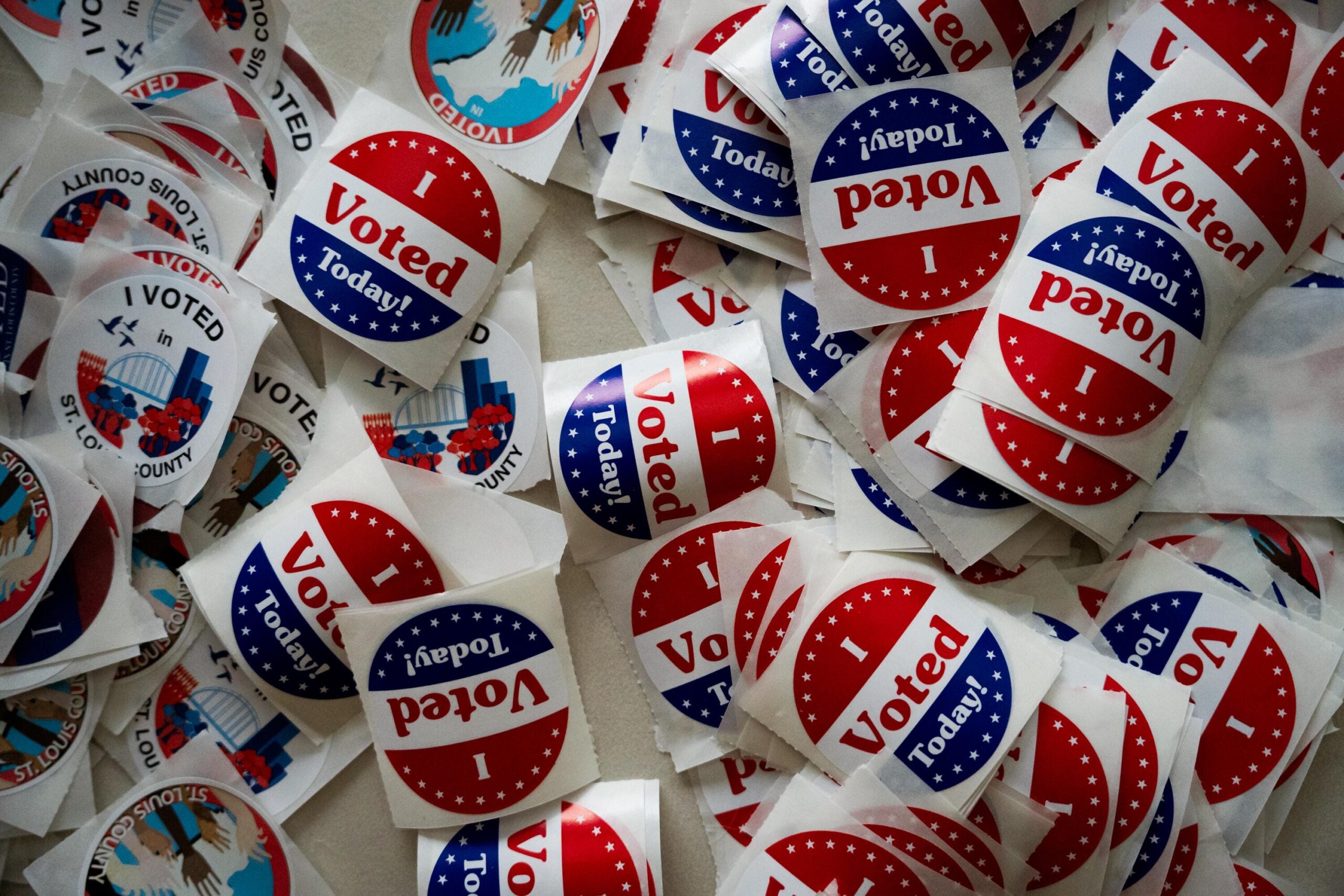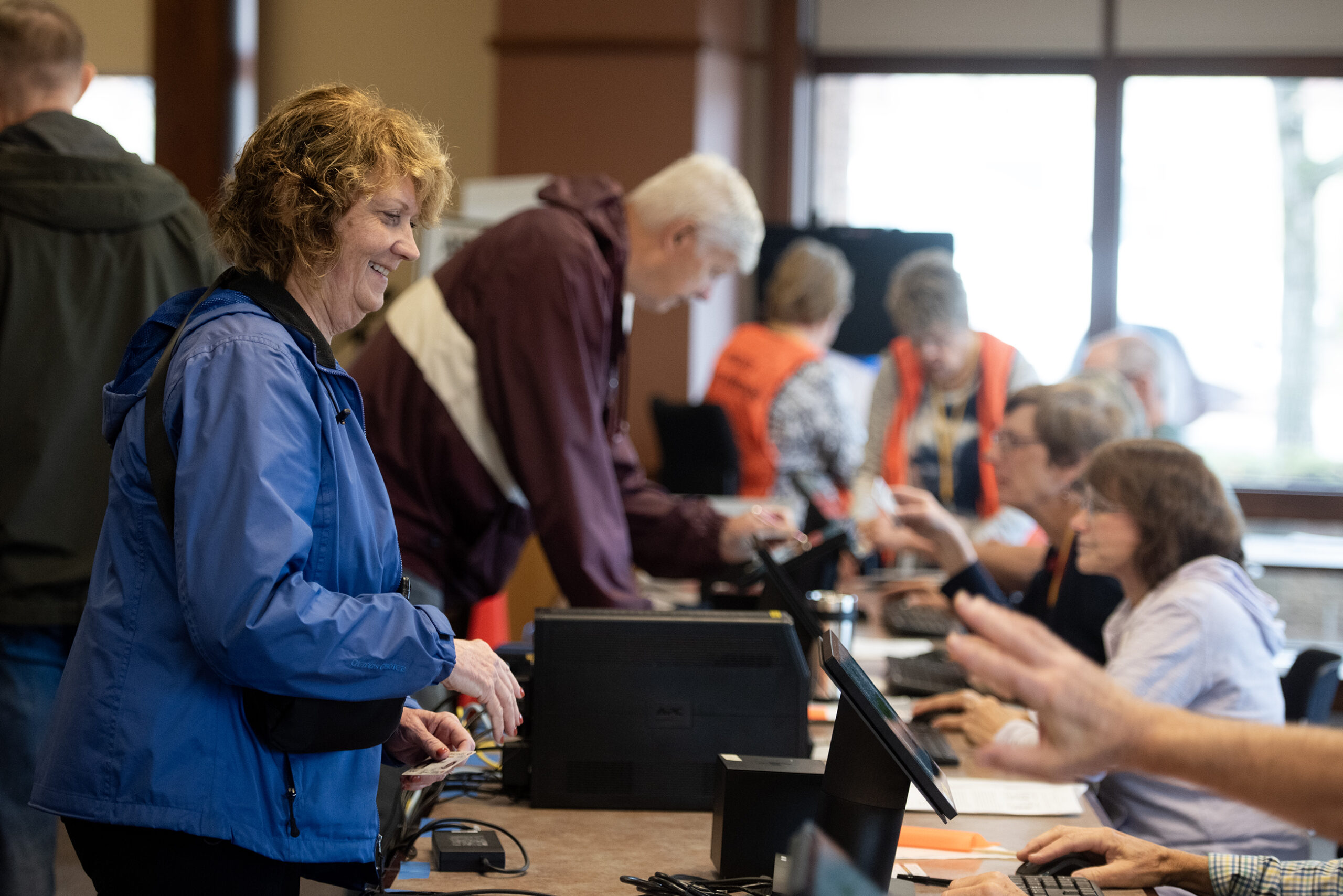Election officials and some community groups raised concerns about several proposed changes to Wisconsin election laws on Thursday as others argued the measures would increase public confidence in elections.
The bills are part of a Republican-backed package of proposed election law changes aimed at changing how the state’s elections are run. Several of the plans are direct responses to criticism of the 2020 U.S. presidential election.
One proposal discussed during a meeting of the state Senate elections committee on Thursday would limit local governments from accepting grant money from an individual or group to assist with administering elections. The bill would also require any grants accepted by the Wisconsin Elections Commission to be distributed to every municipality in Wisconsin on a per capita basis and for the distribution of those funds to be approved by the Legislature’s state budget committee.
News with a little more humanity
WPR’s “Wisconsin Today” newsletter keeps you connected to the state you love without feeling overwhelmed. No paywall. No agenda. No corporate filter.
During the hearing, state Sen. Duey Stroebel, R-Saukville, one of the bill’s sponsors, argued grants distributed to some Wisconsin communities during the 2020 presidential election unfairly benefited Democratic strongholds, like Milwaukee.
“This bill is about fairness, and it certainly wasn’t fair,” Stroebel said. “We do have over 1,800 municipalities in the state of Wisconsin — five got almost all of (the grant money).”
In July, Wisconsin’s five largest cities — Milwaukee, Madison, Green Bay, Kenosha and Racine — announced they would share $6.3 million in grant funding from the Center for Tech and Civic Life (CTCL), a group funded by Facebook executive Mark Zuckerberg, to help run the election during the pandemic.
CTCL said it awarded grants to a total of 221 counties, cities, towns and villages in Wisconsin as part of more than 2,500 election grants handed out nationwide.
According to Claire Woodall-Vogg, executive director of the Milwaukee Election Commission, the city received $3.4 million in election-related grants in 2020.
Woodall-Vogg, who testified against the bill, said the grant funds were used to cover increased pandemic-related expenses, including cleaning supplies, personal protective equipment and secure ballot drop boxes for the community. They were also used to increase poll worker salaries, to combat possible staffing shortages.
She argued the funds were sorely needed and any limits on future funding could be harmful.
“It goes without saying that 2020 was an unprecedented year for election officials and our budgets,” Woodall-Vogg said. “Now is not the time to reduce opportunities for us to find creative, nonpartisan, private funding sources which alleviate the burden on our taxpayers.”
Another part of the proposal would bar employees of some political groups, like political action committees or issue advocacy groups, from serving as poll workers. Woodall-Vogg argued those limits could make it difficult to find poll workers.
Groups, including Disability Rights Wisconsin, also registered their opposition to that part of the bill.
Another bill before the committee on Thursday would require the state Elections Commission to post minutes of its meetings within 24 hours. Supporters argued the change could increase transparency. Opponents argued the timeframe could be difficult for the commission to meet and that other state agencies aren’t held to the same standard.
A third measure would create penalties for election observers who cause disturbances at polling places, including a fine up to $1,000 or 90 days imprisonment for repeat offenses. Current state law doesn’t include specific penalties for these disturbances. The proposal would also make designated observation areas larger.
Some opponents, including the Wisconsin chapter of the American Civil Liberties Union, argued expanding the observation area would move observers too close to voters, which could lead to intimidation.
“We certainly support allowing observers, including nonpartisan observers, to view the voting process — that opportunity, however, must be balanced against the rights of voters to vote in private and free from intimidation,” said Tomas Clasen, community engagement manager at the organization.
Clasen said there have been reports of observers attempting to view some voters’ proof of residency documents that have private information, like social security numbers.
A fourth bill would allow Wisconsin residents to file a lawsuit against someone they believe to have violated election law without first filing a complaint with the Wisconsin Elections Commission. Current law requires a complaint be submitted to the Elections Commission before a lawsuit may be filed.
None of the bills have been voted on in an Assembly or Senate committee. Gov. Tony Evers could veto any of the bills if they are approved by the Legislature. The governor’s office didn’t immediately respond to a request for comment.
Wisconsin Public Radio, © Copyright 2025, Board of Regents of the University of Wisconsin System and Wisconsin Educational Communications Board.







